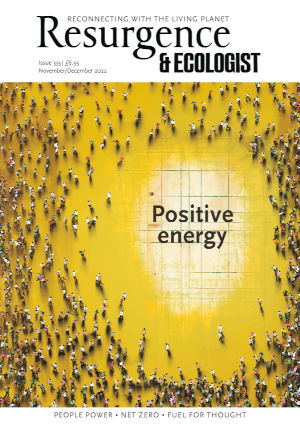The environment movement is at a crossroads. This book is so amiable, with flashes of insight and inspiration, but what road is it taking? Jon Alexander and Ariane Conrad divide time into three overarching stories: the Subject Story of divine kings and powerless subjects; our current Consumer Story of living life through products; and finally the future Citizen Story.
The book is nothing if not ambitious. It explores the Citizen Story hypothesis across the face of the Earth through the stories of Citizen heroes who achieve inventive cooperation among powerless people to, against all odds, make changes for the better. The heroes are selfless community makers. Among them, Kennedy Odede is the most prominent. Raised in Kibera, the largest urban slum in Africa, Odede co-founded the grassroots movement Shining Hope for Communities, which is based in Nairobi. Well, I respect these heroes, but where the Citizen Story begins to melt in the air is the lack of useful suggestions for structural change. Put it this way: these heroes are not touching the fossil investments of big bankers. The extraction industry’s investment class is beyond the reach of any of these Citizens.
The prose style is breathless, and the authors never slow in their deep dig into the issue of our time, but it would have been interesting – and more honest – to show where the Citizen Story might not be able to fix everything. How would these Citizens act in a great movement, finding each other and synchronising action in this Hieronymus Bosch painting that we call home? Citizens is polite to a fault, with the shock of non-corporate culture, the retaking of wilderness and public commons, the invocation of Wild Law against murderous investors… There’s a vast landscape of action that this book throws words at from afar. But the violence against the Earth is officially sanctioned. This book’s model gets in the way of that moment of truth.






